This post contains affiliate links. Please see our disclosure policy.
Does the amount of sourdough starter matter? Have you ever wondered why the amount of sourdough starter in the recipe you’re following has been chosen?
The ratio of sourdough starter to flour in your sourdough recipe is important and can affect many aspects of the sourdough baking process.
Changing the ratio of sourdough starter to flour can be beneficial.
This blog aims to help you understand why certain amounts are calculated and how to manipulate these amounts to better fit sourdough baking into your busy life.
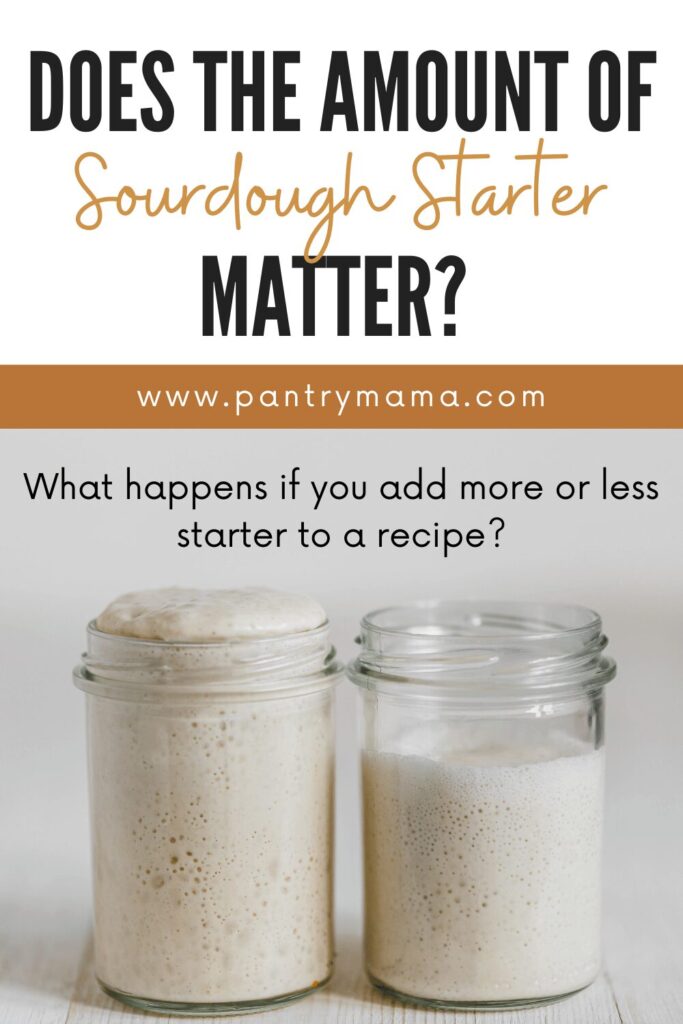
Does The Amount of Sourdough Starter Matter?
You might have noticed that the amount of starter in recipes can vary from 50g up to around 200g (or maybe more). These amounts are not random amounts.
Generally, the amount of sourdough starter in a recipe has been chosen for a specific reason.
And in fact, you can change the amount of starter in a recipe to suit you and your specific needs.
As a general rule, the less sourdough starter you use, the slower your dough will ferment – resulting in a more sour flavored loaf.
The more starter you use, the faster your dough will ferment – resulting in a less sour loaf.
Of course the amount of starter is actually a ratio in relation to the flour – so 50g of starter to 500g of flour will ferment at a much slower rate than 200g of starter to 500g of flour.
They are different percentages. 50g of starter is just 10% in relation to the flour in a recipe with 500g of flour (like this one). Whereas 200g of starter is 40% in relation to the flour in a recipe with 500g of flour.
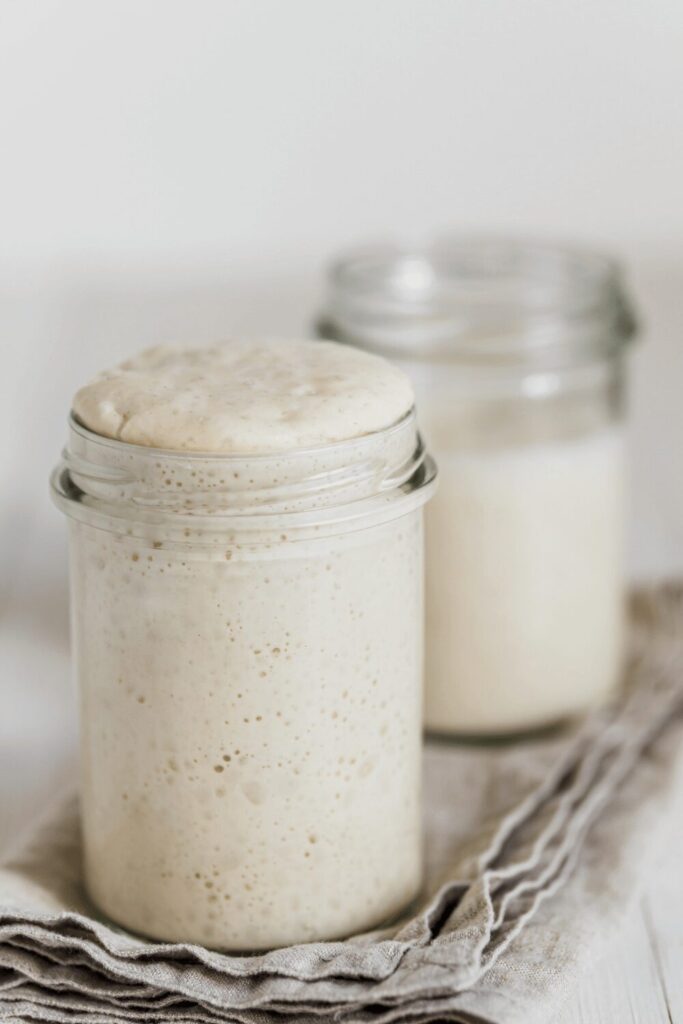
Using Less Starter To STOP Over Fermenting Your Sourdough
In general, the less sourdough starter you use, the less chance you have of over fermenting your dough during the bulk ferment. This reduces the risk of sticky, unshapeable dough.
As with any sourdough recipe, before you start baking bread, you want to make sure that your sourdough starter is as strong as possible.
My basic sourdough recipe uses just 50g of starter for 500g of flour (so just 10% of starter).
The reason I use only 50g is so that there is an option of extending the bulk ferment overnight.
This makes it much easier to fit sourdough baking into my day (or night).
Creating a baking timeline around an overnight bulk ferment allows you mix the dough after work, ferment all night and shape the next morning.
If you want more info on scheduling sourdough around full time work, go here.
Some good reasons to use a smaller amount of starter:
- you can ferment your sourdough for longer periods, which means that you can comfortably do an overnight ferment (as long as it’s not too hot). This long fermented sourdough bread uses just 20g of starter.
- you can develop a really good flavor with a little starter because your dough can ferment longer giving the bacteria more time to develop flavor in your bread.
- Using smaller amounts of sourdough starter mean that you can maintain a smaller sourdough starter.
- You can continue to make sourdough during the summer. If it’s really hot and humid you could even reduce the amount of starter further.
When To Use More Sourdough Starter
Generally, a smaller amount of sourdough starter is all you need. But there are some instances where you might want to increase the amount of starter you use.
Some instances could be:
- If it’s particularly cold, you could increase your sourdough starter to make your bread ferment more quickly. When it’s cold, you could easily ferment 100g of starter overnight.
- If you’re in a hurry and want to make your sourdough ferment more quickly, you could increase your starter up to 200g and decrease your bulk ferment time. I use a big starter amount in this pizza dough.
- You want your sourdough to be less sour – using more starter decreases fermentation time, making your starter less sour (in general).
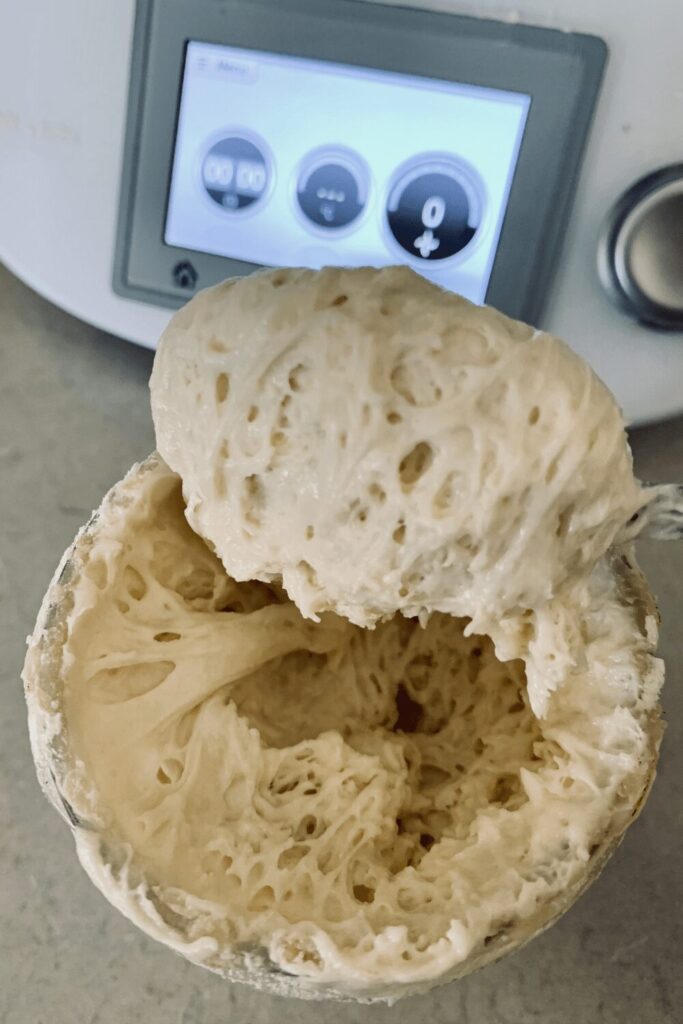
Do I Have To Adjust The Flour & Water Amounts If I Increase Or Decrease The Amount of Sourdough Starter?
You don’t have to adjust the amount of flour and water in your recipe when you increase (or decrease) the amount of starter you use.
BUT – you do need to understand that changing the amount of starter will change the level of hydration in your bread. This isn’t always as big a deal as people make out. I think it really depends on how much starter you’re adding and how comfortable you are working at different hydrations.
Remember that there must be a reason for increasing or decreasing the starter amount – and this will dictate by how much you change the ratio.
In general most sourdough starters are 100% hydration, meaning they contain an equal amount of flour and water.
And you will probably find that many starters are slightly less hydrated (I like to work with quite a stiff starter) so this will reduce the effect that it has on your dough too. If your starter is more watery, you might need to make adjustments for this.
You can see in the table below the effect of changing the starter amount has on my basic sourdough recipe. It’s only a change in hydration of 4%. If you wanted to, adding 150g to 200g of starter you could decrease the amount of water by 10 to 20g to bring the hydration back down to around 72% but you really don’t need to.
| STARTER | FLOUR | WATER | HYDRATION |
| 25g | 500g | 350g | 70.8% |
| 50g | 500g | 350g | 71.4% |
| 100g | 500g | 350g | 72.7% |
| 150g | 500g | 350g | 73.9% |
| 200g | 500g | 350g | 75% |
I hope this helps you to understand the ways in which the amount of starter can affect your sourdough and that the amount of sourdough starter in your recipe really does matter.
Try experimenting with different amounts of sourdough starter in your dough based on your time available and ambient temperature and see what happens!

Further Reading
If you’re curious to know more about how the amount of sourdough starter matters, you’ll find the following links useful:
- Find out how to increase the amount of starter in your jar by scaling your starter here.
- Find out how to bake sourdough in hotter or colder temperatures here.
- Read about how to know when your sourdough starter is ready for baking here.
- Learn about baker’s percentages and ratios here.


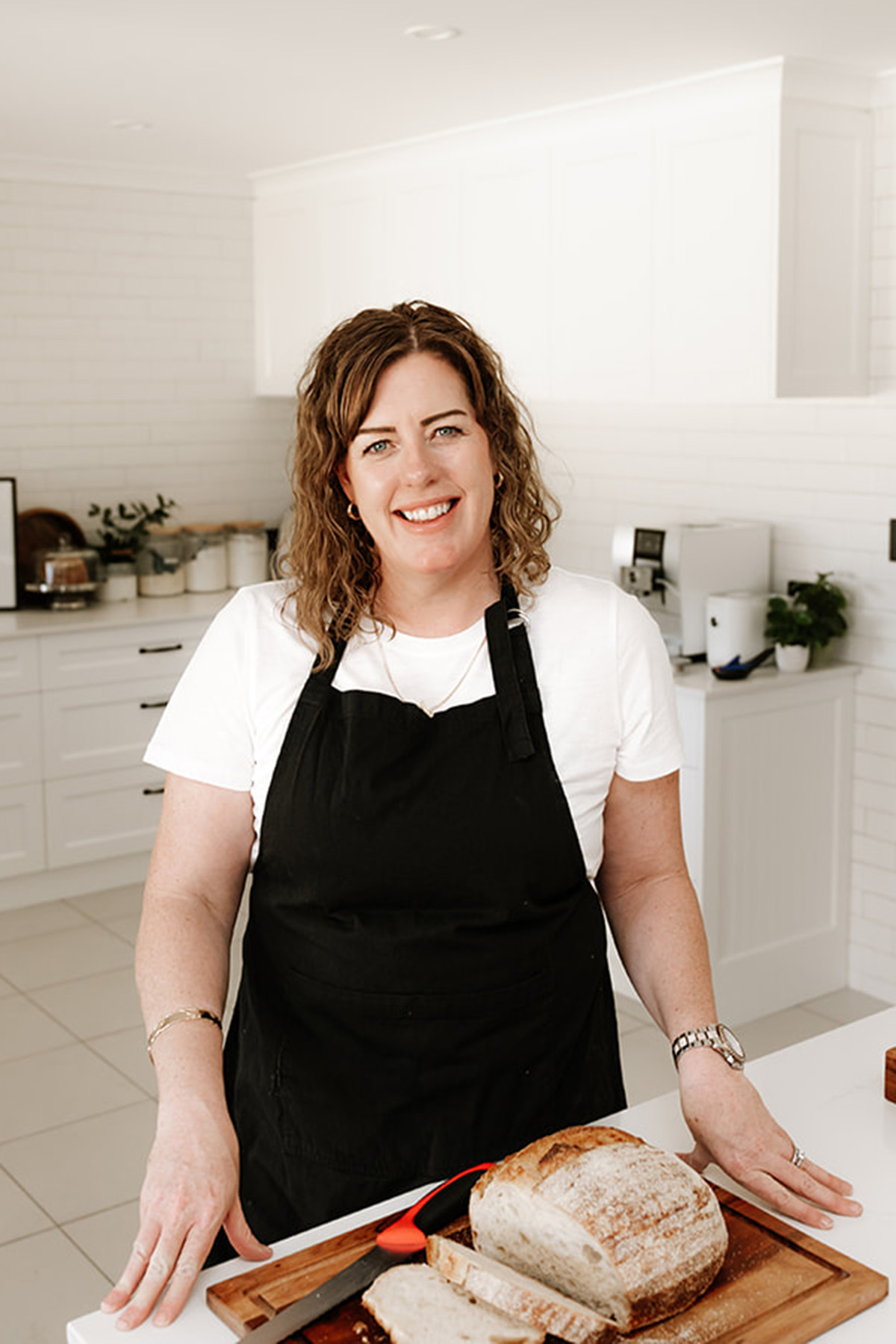
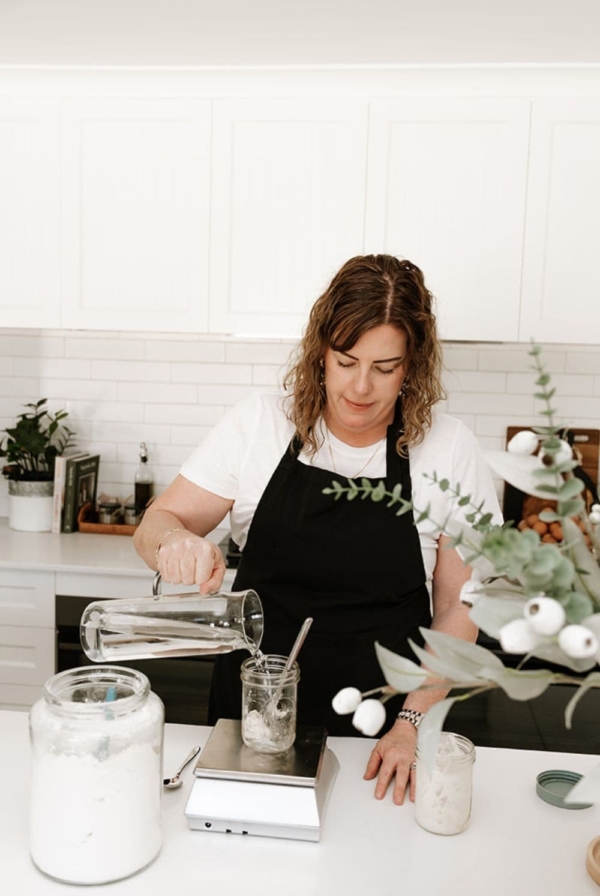
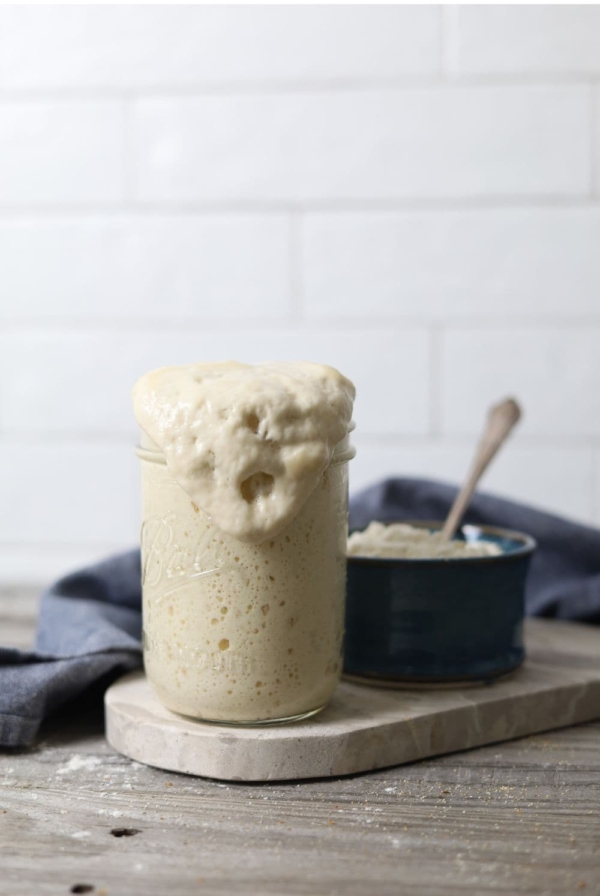
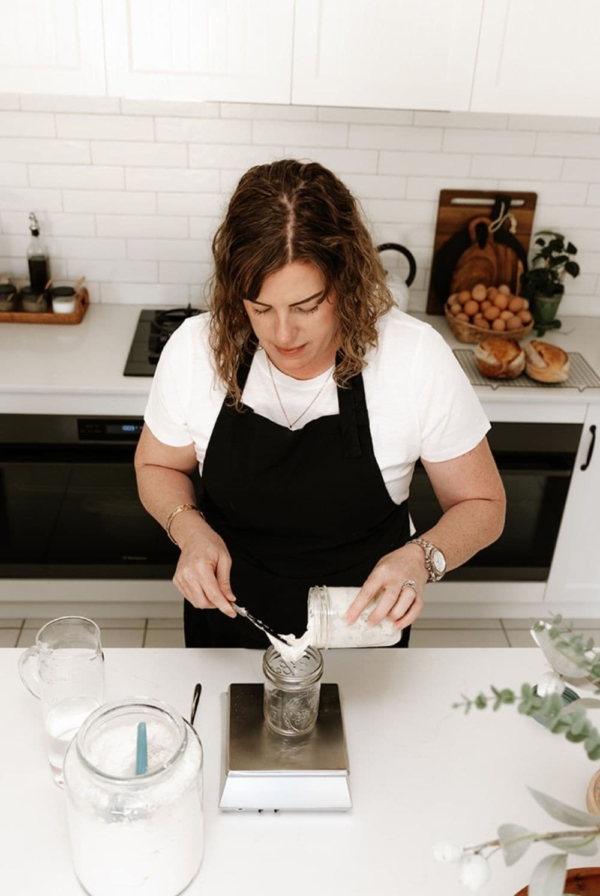
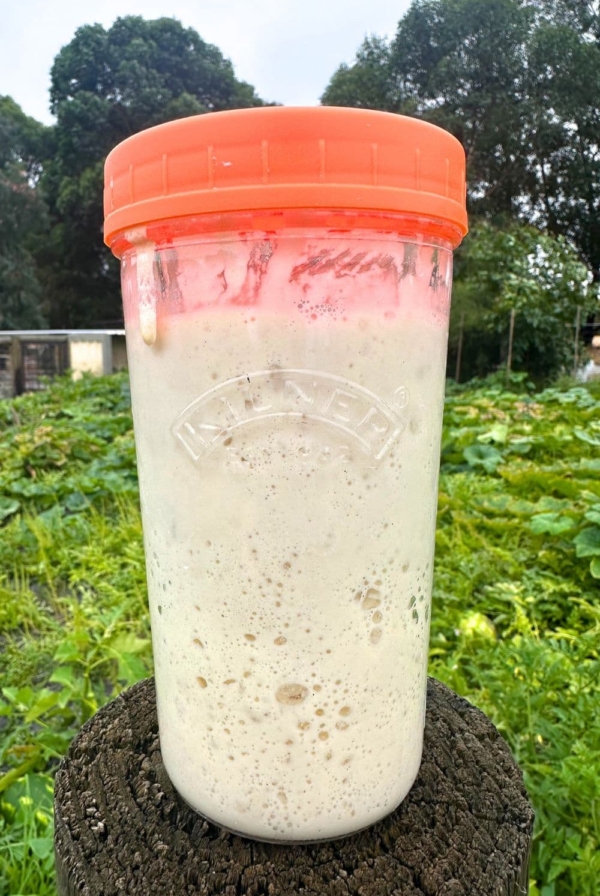




Thank you! Makes sense and I appreciate the information!
Soo good. After fiddling with sourdough for a year and a half, your explanation of managing starter, and quantities, brings great clarity. Thank you!
Tku SO much for your detailed explanation of all the calculations! I so appreciate the clarity making it understandable! Now instead of following a specific recipe, or following a specific one, you have given me the tools to decide what works best for me & my schedule. You are a blessing 🙌 😊
My starter, “Baby Sophia”, is 30 days old now and gets fed 2X day with keeping 20 g starter, and adding 70 g all-purpose flour, 30 g rye flour, and 100 g water. (These were her original instructions). She has produced 3 successful loaves and several successful discard recipes. When she matures at 3 – 6 months old, would you recommend switching to 50 g starter, 50 g flour, and 50 g water? I’m new to sour dough and a little confused as to why some ratios are different than the instructions I received.
It’s just a matter of finding the ratio that works best for you and how you want to use your starter. The good thing is that because it’s a ratio, you can change the amount of starter whenever you like. Honestly, if that ratio is working for you, you don’t need to change it. Once the starter is mature, you can store it in the fridge when you’re not baking to save feeding her everyday 🙂 You can read more about sourdough starter ratios.